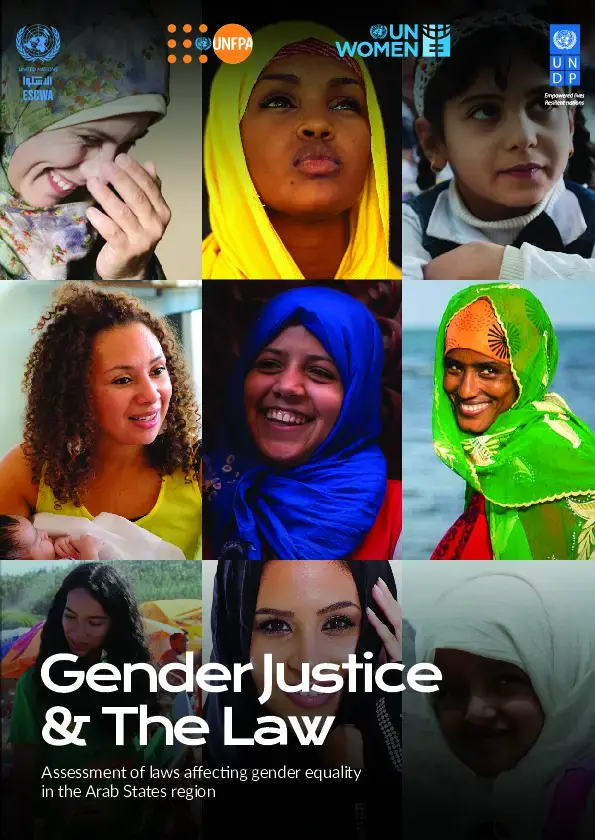In cooperation with the United Nations Development Programme (UNDP), the United Nations Entity for Gender Equality and the Empowerment of Women (UN Women), the United Nations Economic and Social Commission for Western Asia (ESCWA), the United Nations sexual and reproductive health agency (UNFPA) produced a study on Gender Justice and the Law which provides a systematic review of the laws in 18 countries of the Arab states region to assess whether they promote or impede equality between women and men and provide protection against gender-based violence. The countries included in the study are: Algeria, Bahrain, Djibouti, Egypt, Iraq, Jordan, Lebanon, Libya, Morocco, Oman, Qatar, Saudi Arabia, Somalia, State of Palestine, Sudan, Syria, Tunisia, and Yemen. Collectively, this study refers to these countries as the Arab states region.
Yet, legal gaps in many countries continue to deny women equality before the law. In a few countries the Constitution does not guarantee gender equality, and penal codes exonerate a rapist from punishment if he marries his victim in at least 5 countries. Penal codes in 11 countries also allow for mitigating circumstances, such as adultery, to decrease penalties or exonerate perpetrators of so called “honour" killings. None of the countries included in the study explicitly criminalizes marital rape. Nationality laws in 10 countries limit the rights of women to pass citizenship to her children and a foreign spouse, and Family laws in all 18 countries do not give women equal rights in all aspects of marriage, divorce, guardianship and custody of children. Labour laws in 16 countries restrict women from engaging in some types of night work.The study underlines that reforms in several Arab countries have addressed domestic violence and sexual harassment in public and in the workplace, but more needs to be done. Among all the laws analysed those related to labour show the most equality including the right to equal pay for the same work as men and secured paid maternity leave.


